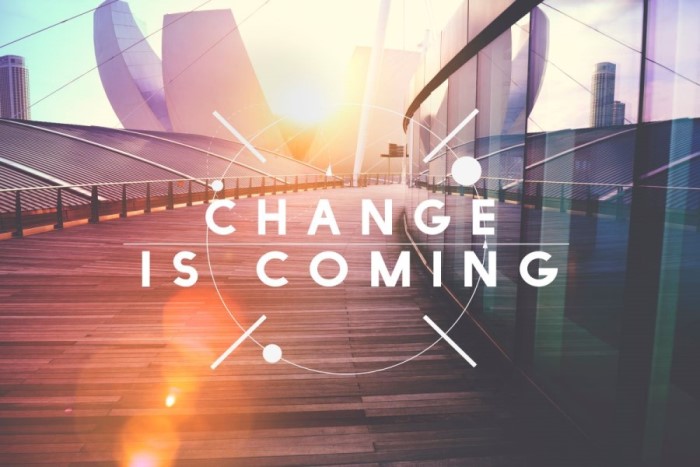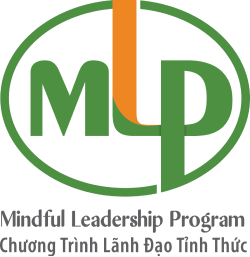QUẢN TRỊ SỰ THAY ĐỔI NHỜ PHƯƠNG PHÁP TIẾP CẬN VỊ NHÂN SINH
Hầu như, con người đều thích khả năng dự đoán. Chính vì thế, khi các sự việc xảy ra không như chúng ta nghĩ, thì nó lại khiến con người trở nên khó chịu hơn. Tuy nhiên, trong thế giới này “chỉ có một điều chắc chắn đó chính là sự không chắc chắn”. Ngày nay, sự thay đổi lớn có thể diễn ra chỉ trong một đêm, bất ngờ và khiến ta chưa kịp sẵn sàng đối phó. Sự thay đổi có thể ảnh hưởng trực tiếp đến cách chúng ta làm việc, gia tăng căng thẳng và xuất hiện các cảm xúc tiêu cực như lo lắng, sợ hãi, bất định và hoang mang.
Để duy trì năng lực cạnh tranh trong bối cảnh ngày nay, các tổ chức phải có chính sách hỗ trợ nhân viên phát triển các kỹ năng thích ứng, nhanh nhẹn, cảnh giác nhưng vẫn bình tĩnh chuẩn bị cho những thách thức. Nếu không làm điều này, các doanh nghiệp có thể sẽ phải đối mặt nhiều thách thức và sự khó chịu hơn.
Do đó, ngay từ bây giờ, doanh nghiệp cần củng cố và áp dụng các kỹ năng về trí tuệ cảm xúc để đưa bản thân và đội ngũ thay đổi theo hướng tích cực và thành công hơn chính là thay đổi vị nhân sinh.

Chỉ có một điều chắc chắn đó chính là sự không chắc chắn
Theo dõi thái độ làm việc
Khi một sự thay đổi sắp xảy ra, kể cả trong gia đình hay tổ chức, bạn sẽ ngay lập tức cho rằng nó sẽ có ảnh hưởng tiêu cực. Do đó, bạn thường tìm cách để phản kháng và làm tình thế trở nên khác đi. Và nếu bạn đang ở vị trí lãnh đạo, sự phản kháng và thái độ của bạn có thể ảnh hưởng trực tiếp đến cách mà đội ngũ tiếp cận thách thức. Do đó, bạn cần phải xác định xem thái độ của bạn đang ở chiều hướng tích cực hay tiêu cực. Trong số đó, việc thực hành chánh niệm có thể giúp bạn củng cố nhận thức về bản thân. Và khi đã xác định được nguồn gốc của sự phán kháng, bạn có thể dễ dàng lên chiến lược quản trị hiệu quả.
Một nghiên cứu đã chỉ ra tầm quan trọng của việc trau dồi thái độ tích cực. Nhà lãnh đạo có thể khuyến khích đội ngũ cởi mở với những cách làm mới. Vậy liệu điều này có dễ dàng thực hiện như lời nói? May mắn thay, thái độ tích cực là một kỹ năng có thể rèn luyện được. Và nhờ đó, bạn và đội ngũ hoàn toàn có thể cải thiện khả năng thích ứng với sự thay đổi.
Khai phá động lực làm việc
Một trong những nhiệm vụ quan trọng của nhà lãnh đạo là giúp đội ngũ của mình nhìn thấy được bức tranh toàn cảnh và hiểu được vai trò trực tiếp lẫn gián tiếp của bản thân. Nếu bạn lựa chọn trở thành người tiên phong thông qua sự thay đổi mà không bao gồm đội ngũ, thì chắc chắn đó là một trận chiến khó khăn. Nhưng nếu bạn duy trì tinh thần cởi mở, tỉnh thức và bao quát, thì đội ngũ của bạn có thể đạt được những nhận thức mới và đóng góp vào văn hóa tích cực.
Nếu bạn đang cảm thấy khó khăn trong việc đạt được những cam kết của đội ngũ đối với sự thay đổi sắp tới, thì có thể dành thời gian để làm rõ lại mục đích, giúp đội ngũ nhìn thấy được bức tranh toàn cảnh, động lực thành công trong sự thay đổi này.
Tăng cường khả năng phục hồi
Đại dịch Covid-19 được xem là “phép thử” khả năng phục hồi của các cá nhân và tổ chức trên toàn thế giới. Nó đã đưa nhiều người trong số chúng ta đến bờ vực thất bại, nhưng cũng giúp chúng ta nhìn nhận ra các “điểm mù” trong khả năng của chính mình nhằm thích ứng với sự thay đổi trong bối cảnh không chắc chắn.
Có lẽ phản ứng của bạn với những thay đổi gần đây chính là căng thẳng hoặc bi quan. May mắn thay, nghiên cứu về tính đàn hồi thần kinh cho thấy rằng bạn có thể điều chỉnh lại phản ứng của mình trước sự không chắc chắn và căng thẳng. Trong số đó, khả năng lãnh đạo tỉnh thức và sự vững chãi từ bên trong được xem là yếu tố quan trọng nhất.
Cho dù bạn đang đối mặt với sự thay đổi lớn trong tổ chức hoặc muốn chuẩn bị cho những sự thay đổi sắp tới, thì việc củng cố các kỹ năng vị nhân sinh – lấy con người làm trung tâm, sẽ giúp bạn duy trì sự nhanh nhẹn và cởi mở để tìm kiếm các cơ hội trong thách thức.
Nguồn: SIYLI.org
|
Chương trình được học trong 02 ngày 11 & 12/06/2022. Địa điểm: TP. Hồ Chí Minh |
- Seminar: ELEVATING LEADERSHIP WITH EMOTIONAL INTELLIGENCE IN THE AI ERA
- 5 REASONS YOUR COMPANY SHOULD BE INVESTING IN MINDFULNESS TRAINING
- HOW TO PRACTICE MINDFULNESS
- Want to increase trust in your leadership abilities?
- Three Ways to Build and Maintain Your Team’s Motivation
- How to Navigate Conflict with Emotional Intelligence
- How to Manage Conflict at Work
- WHAT REALLY DRIVES US: HOW TO BUILD TEAM PERFORMANCE THROUGH INTRINSIC MOTIVATION
- THE IMPACT OF EMOTIONAL INTELLIGENCE ON EMPLOYEE ENGAGEMENT
- THE IMPACT OF EMOTIONAL INTELLIGENCE ON EMPLOYEE ENGAGEMENT






